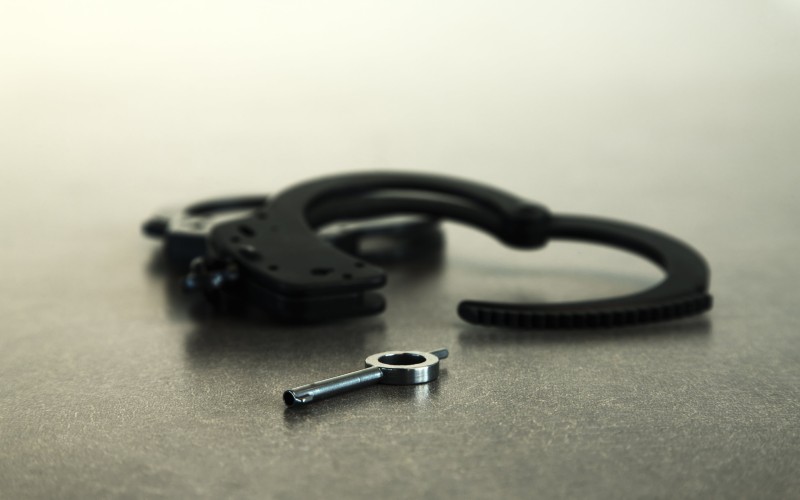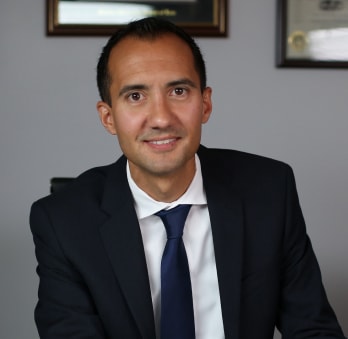
Picture this—your child is at a legal crossroads, torn between two opposing options. One travels through the familiar area of the juvenile system, emphasizing rehabilitation and growth.
The other, steeped in fear and uncertainty, leads to the ruthless adult court system and its devastating penalties.
Under Minnesota law, this key point is called Extended Juvenile Jurisdiction. Understanding the unique nature of EJJ and its possible consequences is crucial for you and your child, if your child is accused of a crime.
Armed with knowledge and the guidance of a seasoned legal advocate, you can become your child’s champion, ensuring they receive the best possible chance to overcome this challenging situation.
To speak with an experienced juvenile crimes lawyer, please contact us today. We are ready to fight for your child.
What Is Extended Juvenile Jurisdiction?
In Minnesota, the juvenile justice system strives to rehabilitate young offenders while also safeguarding public safety.
Extended juvenile jurisdiction empowers the juvenile court to maintain authority over minors aged 14 to 17 who commit specific felonies and exhibit particular risk factors.
This means they could face adult sentences, including prison time, even if they haven’t reached adulthood.
Essentially, EJJ serves as a link between juvenile and adult systems. It offers rehabilitation within the juvenile framework while simultaneously recognizing the seriousness of the offense.
Minnesota Rules of Juvenile Delinquency Procedure and EJJ
The procedures governing juvenile delinquency cases, including extended juvenile jurisdiction cases, are found in the Minnesota Rules of Juvenile Delinquency Procedure.
These rules establish clear guidelines for determining juvenile court jurisdiction, including the need to consider the minor’s age, the nature of the offense, and the potential risk factors involved.
Jurisdiction Sentence: Balancing Accountability and Second Chances
Reflecting Minnesota’s commitment to tailoring justice to individual needs within the juvenile justice system, the court issues a jurisdiction sentence that outlines the maximum adult sentence the minor could face if they violate their juvenile disposition.
This dual sentencing structure reflects a crucial balance:
- Juvenile disposition that addresses rehabilitation and treatment needs, offering a second chance; and
- Adult disposition that acknowledges the offense’s severity and serves as a reminder of potential consequences.
While the jurisdiction sentence sets the boundaries, individual circumstances play a key role. The outcome hinges on your child’s actions, demonstrating responsibility, and complying with their juvenile disposition terms.
How Does a Minor Become Subject to Extended Juvenile Jurisdiction?
To be subject to EJJ, the juvenile must be at least 14 years old at the time of the offense. The offense must be a serious felony, and the minor must be eligible for adult certification.
There are three ways that a child can become subject to EJJ in Minnesota:
- Certification hearing—the minor was 14 to 17 years old at the time of the alleged offense; a certification hearing was held, and the court designated the proceeding an EJJ prosecution.
- Presumed imprisonment—the child was 16 or 17 years old at the time, alleged to have committed an offense that requires a mandatory minimum sentence of incarceration, or committed any felony in which the child allegedly used a firearm.
- Hearing on designation—the minor was 14 to 17 years old; the prosecutor requested that the proceeding be designated an EJJ prosecution, and the court designated the proceeding an EJJ prosecution.
Each situation has distinct criteria that determine your child’s potential EJJ designation. Ultimately, the judge decides whether to invoke EJJ based on various factors, including the severity of the offense, the minor’s maturity and past criminal history, and the potential for rehabilitation in the juvenile system.
Consulting with a Minnesota juvenile crimes lawyer can help you determine whether your child’s circumstance falls under EJJ and provide guidance on the next steps.
Rights and Consequences of an EJJ Prosecution
A child subject to an EJJ prosecution has the right to a trial by jury and effective legal counsel. If an Extended Juvenile Jurisdiction prosecution results in a guilty plea or finding of guilt, the court must impose both a juvenile disposition and an adult criminal sentence.
For example, the juvenile disposition may be probation with community service, while the adult sentence involves an 18-month jail term.
To dismiss charges before the minor turns 21, the court must determine if rehabilitation has been successful and there is no threat to public safety.
Frequently Asked Questions About Extended Juvenile Jurisdiction in Minnesota
How Long Does the Adult Sentence Stay in Effect?
The adult sentence is “stayed” or suspended as long as the minor complies with the terms of their juvenile disposition. However, if they violate these terms or commit a new offense, the court can activate the adult sentence.
What Kind of Offenses Lead To EJJ?
EJJ applies to felonies, but not all felonies trigger it. The offense must be a serious felony. The specific crimes vary, but examples include:
- Violent crimes—assault, homicide, robbery.
- Weapon offenses—gun possession, carrying a concealed weapon.
- Drug offenses—sale of controlled substances, large-scale possession.
- Property crimes—arson, burglary, theft exceeding a specific value.
While these examples offer a starting point, EJJ eligibility depends on more than just the defense.
What Should I Do If My Child Is Facing EJJ Charges?
Contact a juvenile law and criminal attorney right away. They can advise you on the best course of action, explain your child’s rights, and represent them in court.
Experienced Legal Representation Matters. Contact Arechigo & Stokka
It takes the experience of seasoned attorneys committed to fighting for their client’s rights and best interests to navigate this maze of Extended Juvenile Jurisdiction.
Our juvenile crimes lawyers at Arechigo & Stokka know the ins and outs of EJJ, ensuring our clients get the most comprehensive defense.
We understand the unique challenges that arise in these cases and can:
- Explain your rights and options in clear, understandable language;
- Challenge the EJJ designation, if necessary;
- Negotiate a favorable plea bargain; and
- Advocate for your best interests in court.
Remember, you and your family don’t have to go through this alone. Contact us today for a free consultation.
We bring years of experience and a commitment to providing the people of Minnesota with compassionate and effective legal representation.



